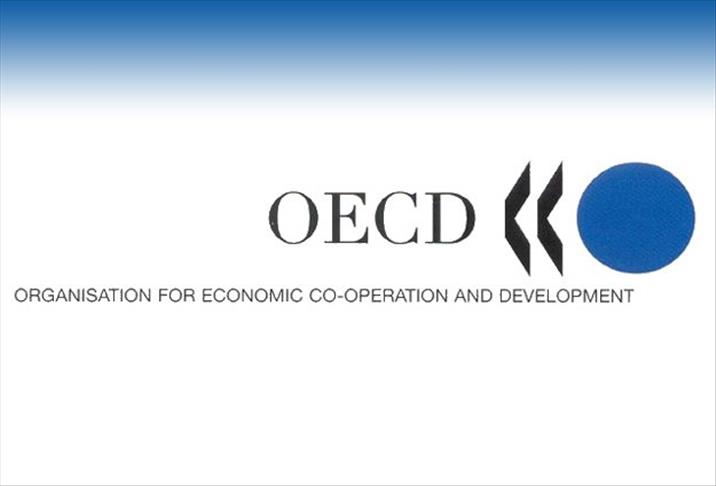
PARIS
The Organization for Economic Cooperation and Development lifted Thursday Turkey's growth forecast to 3.3 percent for this year from its previous estimate of 2.2 percent in its May economic outlook report.
The OECD retained its four percent economic growth projection for Turkey in 2015.
According to its bi-yearly Economic Survey of Turkey report, Turkey's economy will grow stronger in the coming years but remains overly dependent on domestic consumption funded by foreign finance.
Turkey's economy continued its growth path for the 18th consecutive quarter, expanding by 4.3 percent in the January-March period of 2014 at constant prices, after growing four percent in 2013; the Turkish government expects a four percent expansion this year.
Separately, on June 23, the World Bank pointed to Turkey's high exports and sustained government demand when upgrading the country's growth rate forecast to 3.5 percent from 2.4 percent in a global prospect report.
The OECD said Turkey should rebalance growth through monetary and financial policies which keep inflation, exchange rates and credit levels on sustainable paths.
The Paris-based monitoring group warned about two major issues for Turkey: "The main risks to growth were domestic political tensions and possible renewed global financial market turmoil following monetary policy normalization in the U.S."
The country held its local elections on March 30 this year and its first round of a presidential election will be held on August 10. The country's 18th general elections are due to be held in June next year to elect 550 new members of parliament.
The organization reports that Turkey's growth will also be affected negatively, mainly through weaker exports, if geopolitical risks were to intensify in some MENA countries, Russia and Ukraine – which together account for a quarter of Turkey's exports.
The organization also said Turkey's inflation is projected to fall in the second half of 2014 but should remain well above the five percent target, partly due to ongoing effects from exchange rate depreciation and tax hikes in January 2014.
According to Turkstat, the Consumer Price Index rose 9.16 percent in June compared to the same month last year – 50 points less than the country's yearly inflation in May.
On 29 January this year, the Central Bank of Turkey introduced drastic interest rate rises in response to the rise of the U.S. dollar against the lira in mid-January.
Turkey's Central Bank expects that foreign demand and net exports growth will support disinflation in the country and will lead to a significant improvement in the current account deficit in 2014
"A better overall regulatory framework is essential if the business sector is to remain a driver of strong and inclusive growth. Structural change in the business sector would strengthen competitiveness, exports, employment, income and savings, help rebalance domestic and external demand, and move the economy toward an externally sustainable path," the OECD said in the report.
It also said Turkey should also implement the legislated – but not yet operational – state aid monitoring system to further improve trust in a rules-based environment.
Anadolu Agency website contains only a portion of the news stories offered to subscribers in the AA News Broadcasting System (HAS), and in summarized form. Please contact us for subscription options.

